Are you looking to update your allergy management plan but not sure where to start? Crafting a clear and comprehensive letter can make all the difference in communicating your needs effectively. Whether it's to inform your school, workplace, or healthcare provider, ensuring everyone is on the same page is crucial for your safety. Dive into our article for an easy-to-follow template and helpful tips on making your allergy management plan updates seamless!
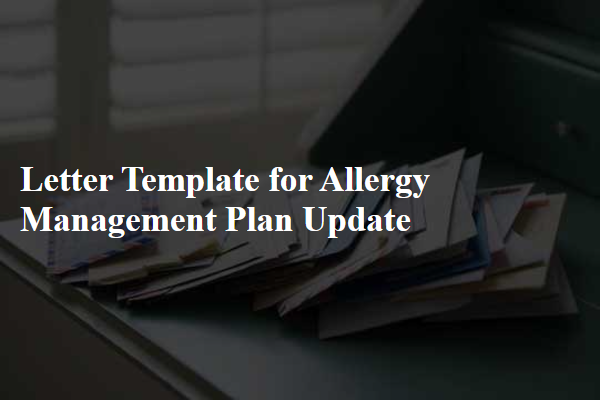
Patient Information
An allergy management plan update for a patient requires detailed information to ensure effective monitoring and treatment. Patient information includes personal details such as full name, date of birth, and unique identification number, crucial for the healthcare provider to track the patient's history. Allergies must be listed specifically, noting the reactions experienced, severity levels, and any documented hospitalizations. Essential medications must be included, emphasizing any epinephrine auto-injectors prescribed, with exact dosages. Emergency contacts should be clearly identified, along with preferred medical facilities for allergy emergencies. Detailed instructions on avoidance strategies, such as avoiding specific food items like peanuts or environments with mold, are critical for daily management. Regular follow-ups should be scheduled to reassess and update the plan as needed, ensuring the patient's safety and well-being.
Allergy List
An allergy management plan is essential for individuals with known allergies, ensuring safety and preventing allergic reactions. Common allergens include peanuts, tree nuts, dairy, eggs, shellfish, soy, wheat, strawberries, and certain medications like penicillin. Each allergen poses varying levels of risk, requiring personalized strategies for avoidance. For instance, cross-contamination is a significant concern in food preparation areas, necessitating clear labeling and separation of allergenic ingredients. Parents or guardians should communicate with schools, daycare centers, and caregivers, providing updated allergy lists to facilitate safe environments. Regular reviews of allergy lists, especially after severe allergic reactions, can help maintain effective management and enhance the individual's quality of life.
Medication Overview
Allergy management for individuals can significantly improve quality of life and ensure safety. A comprehensive medication overview includes critical prescriptions such as Antihistamines like Cetirizine (commonly prescribed for hay fever, effective for reducing symptoms) and EpiPens (epinephrine auto-injectors used in anaphylaxis emergencies). Dosing schedules should include specific instructional points, for example, taking antihistamines consistently before allergy season (usually in spring to summer months). It is crucial to monitor for side effects such as drowsiness or stimulation from different formulations. Documenting all allergies (e.g., pollen, peanuts) alongside medications enhances clarity. Regular review by healthcare providers, typically at annual check-ups, ensures medications remain effective and adjustments are made, considering patients' changing health statuses or allergy severity.
Emergency Contact Details
The Allergy Management Plan requires urgent updates to ensure safety and readiness in case of allergic reactions, particularly for students with severe allergies to common allergens like peanuts and tree nuts, which could lead to anaphylaxis. Emergency contact details must be current and accessible, listing primary caregivers, such as parents or guardians, along with their phone numbers to ensure immediate communication. Secondary contacts should also be included, such as relatives or close family friends, capable of assisting in emergencies. It's essential to note the preferred medical facilities, like local hospitals or clinics, equipped to handle allergic reactions quickly, providing a clear path for rapid care. Regular reviews of these details, at least once per academic term or following significant life changes, can enhance the effectiveness of the allergy management plan.
Healthcare Provider Sign-off
An allergy management plan requires regular updates to ensure patient safety. Healthcare providers must assess the patient's current allergies, including food allergies, environmental triggers, and medication sensitivities. Key components such as emergency action plans (EAPs) for severe allergic reactions, including the administration of epinephrine auto-injectors, must be reviewed. Additionally, patient education on recognizing symptoms of anaphylaxis, the importance of carrying identification such as medical alert cards, and strategies for avoiding allergens is essential. Documentation should be signed off by a licensed healthcare provider, confirming the plan's accuracy and effectiveness, thereby providing reassurance to patients and caregivers regarding management protocols in various environments, such as schools or workplaces.

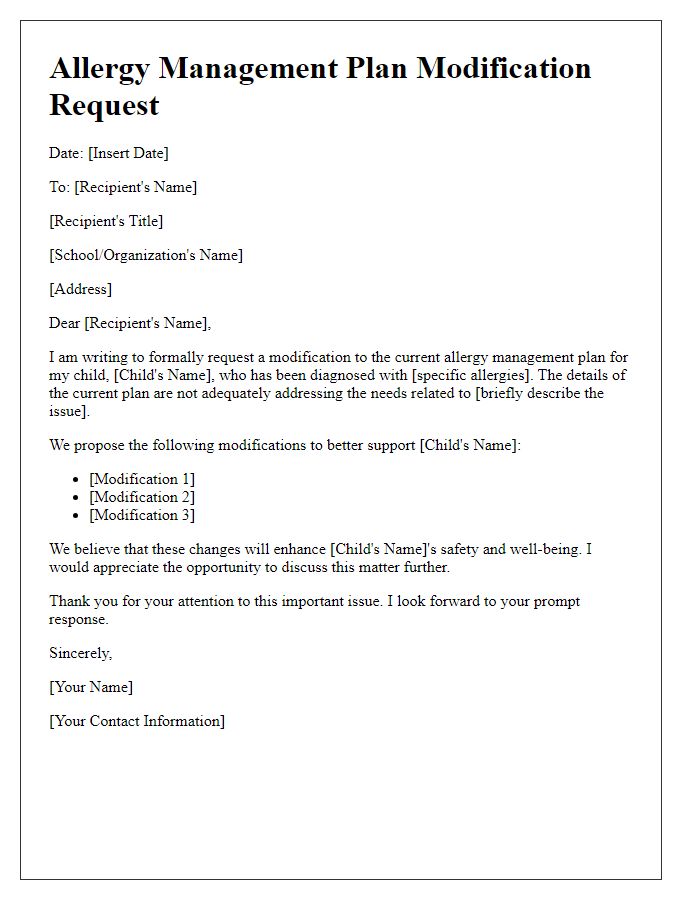
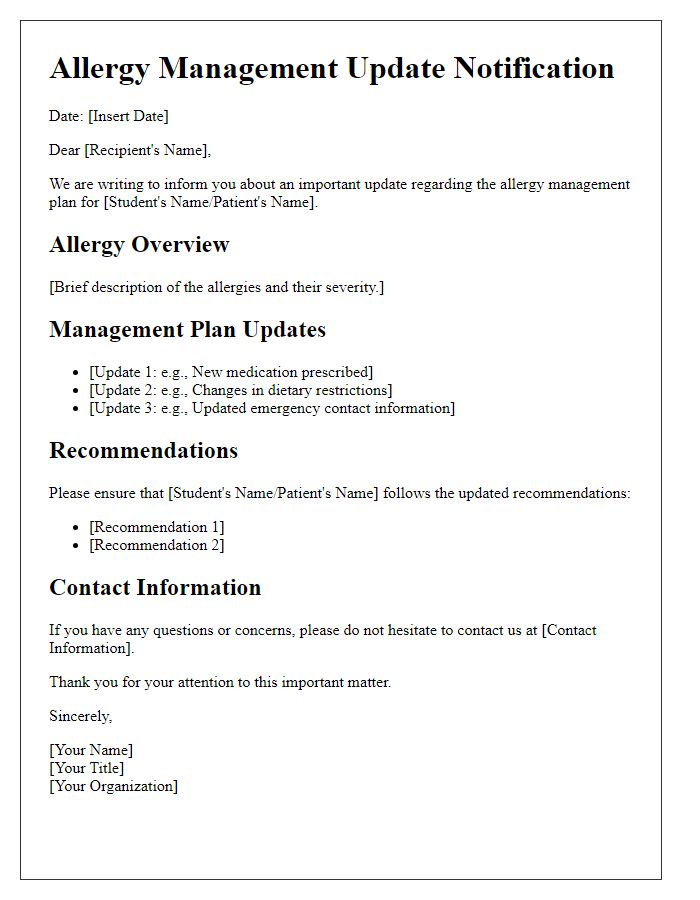
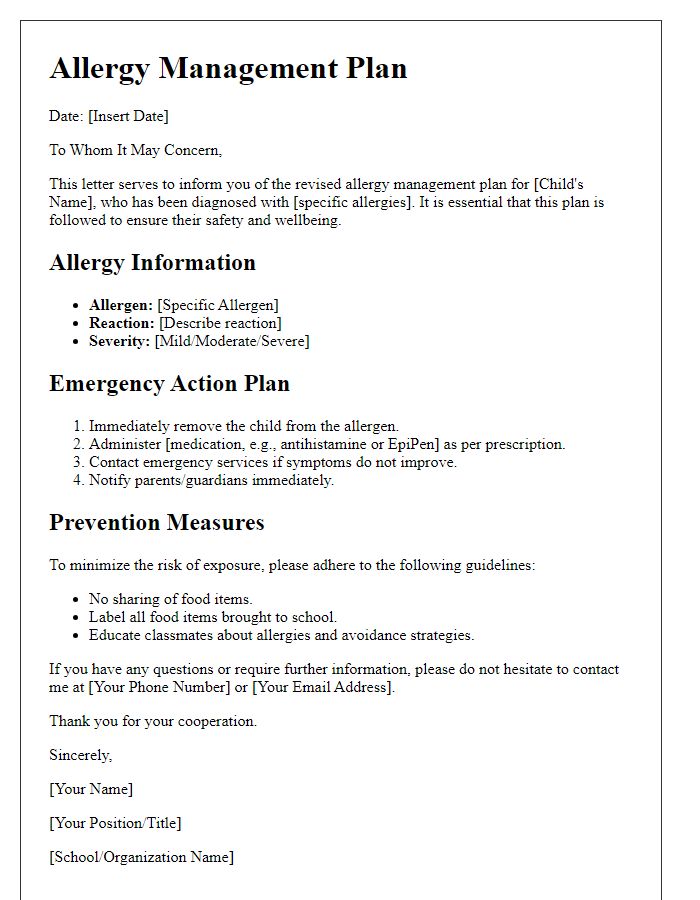
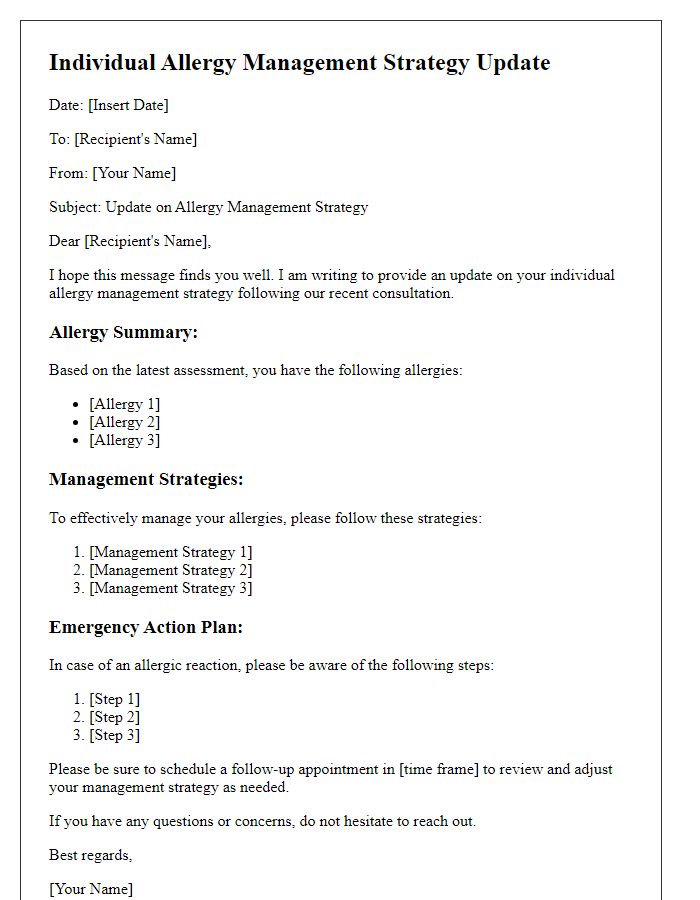
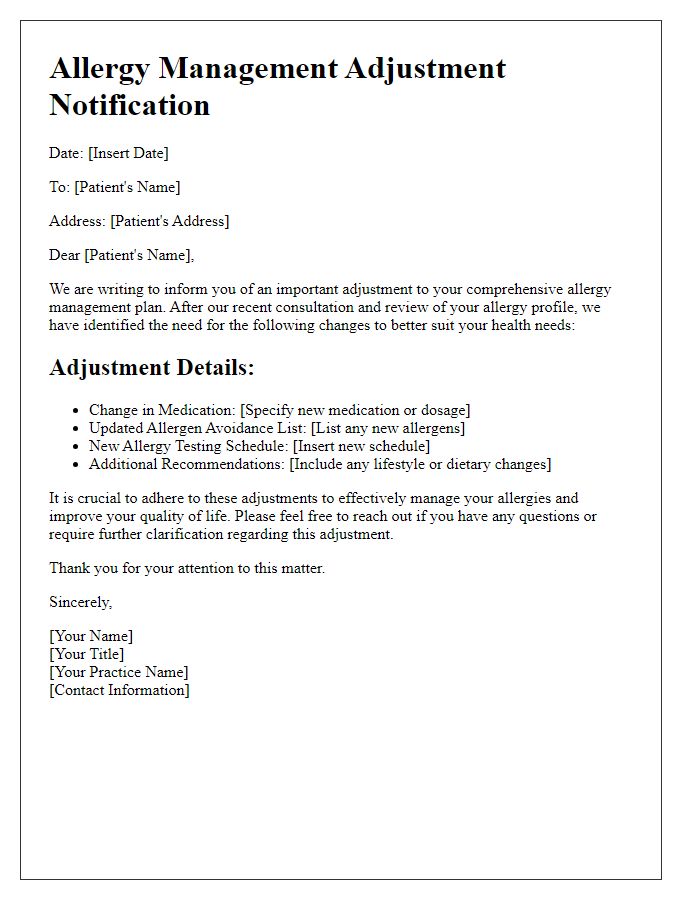
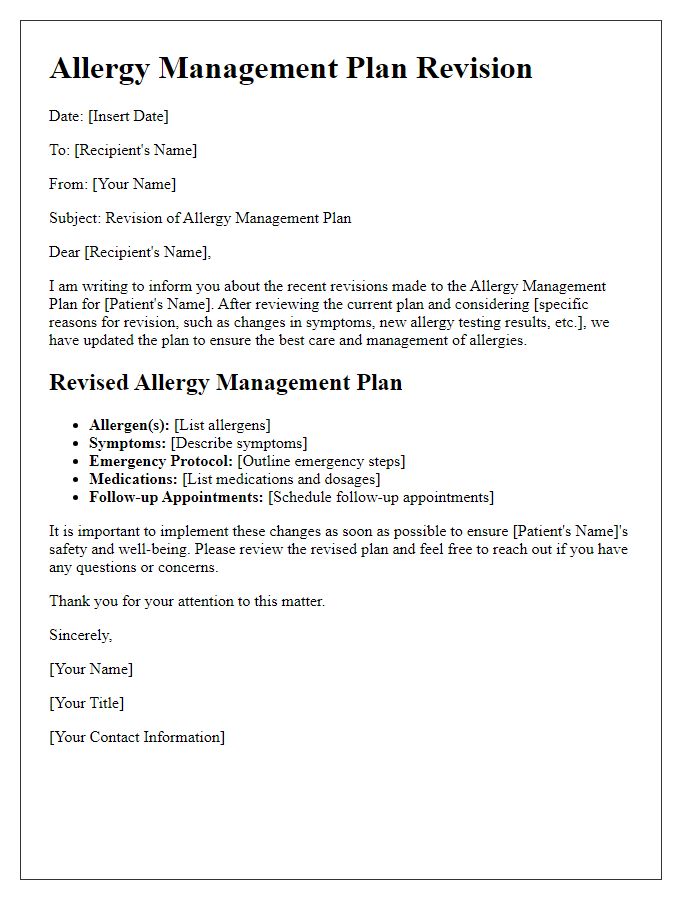
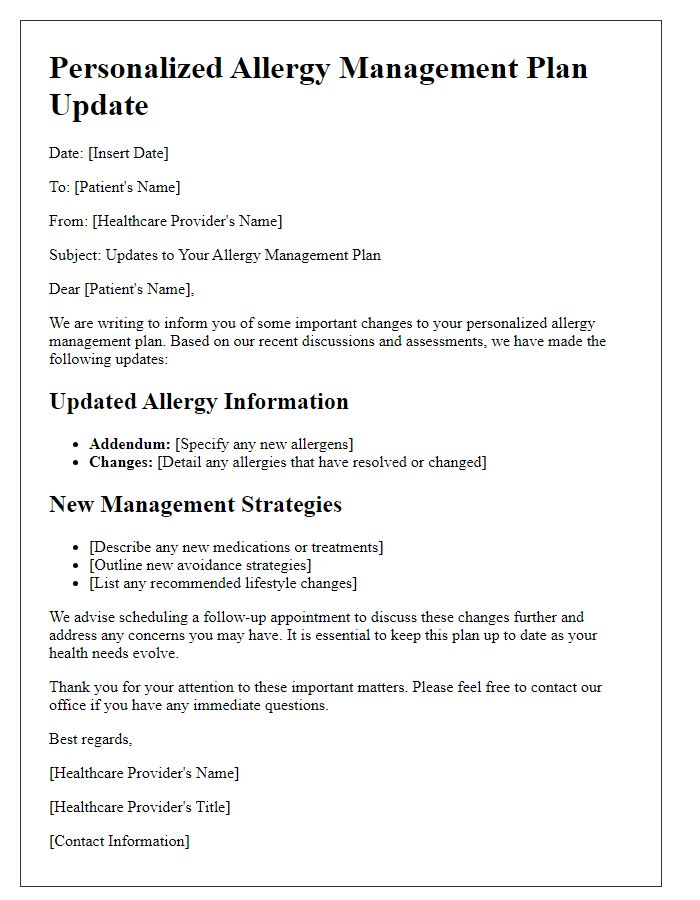
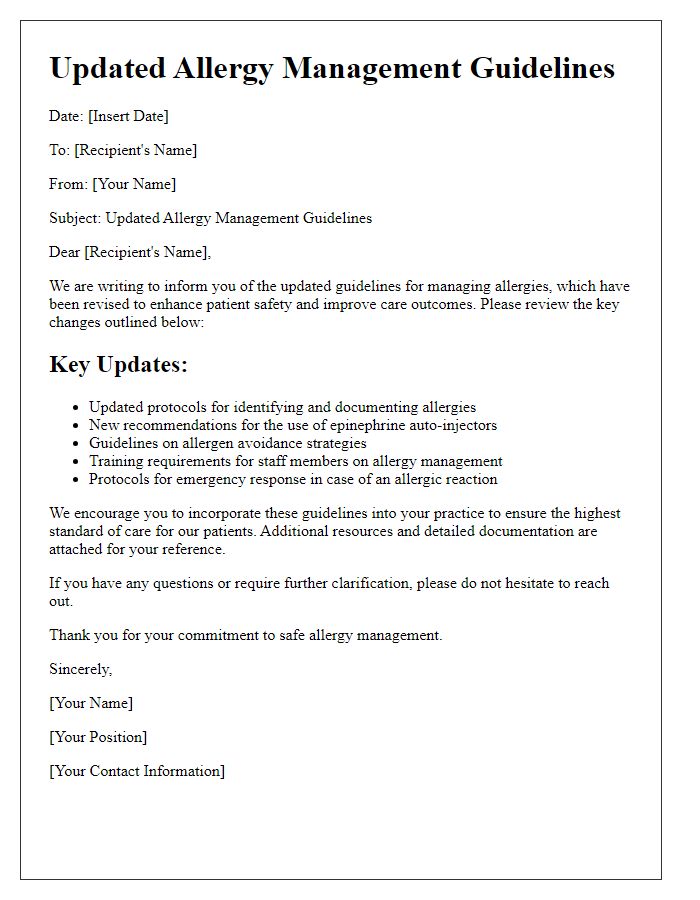
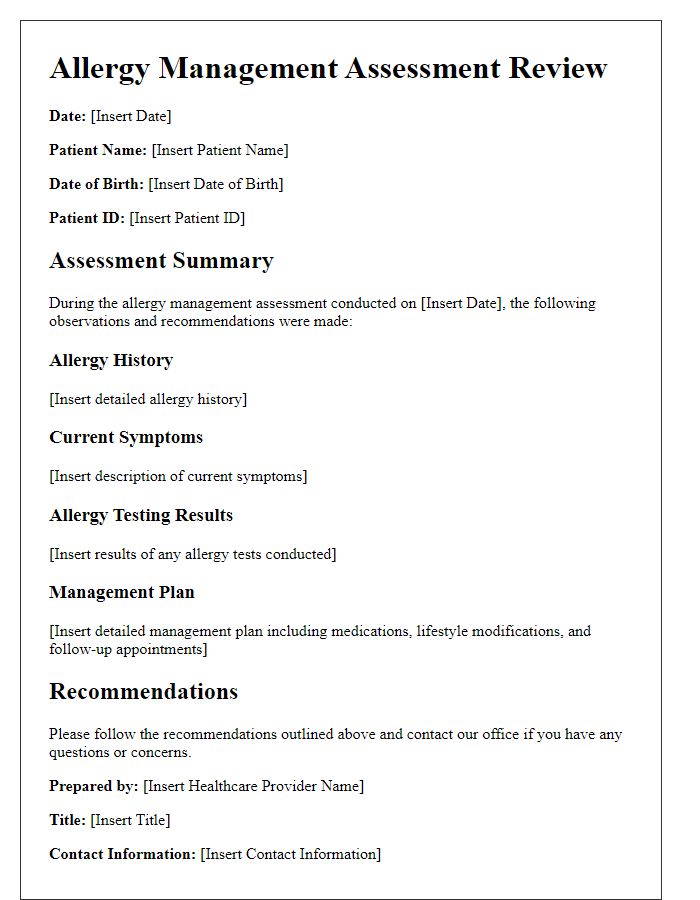
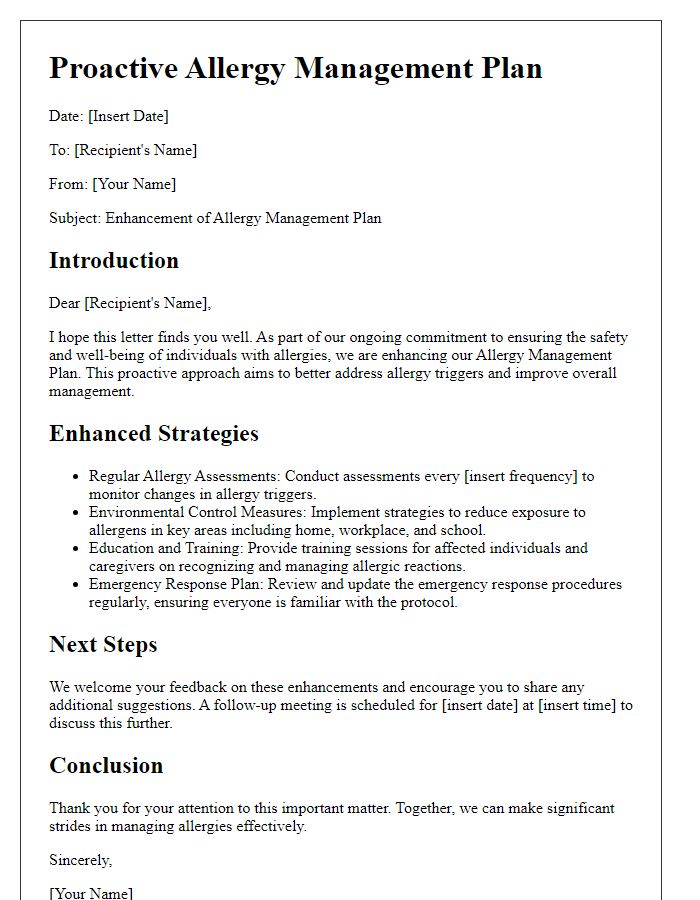

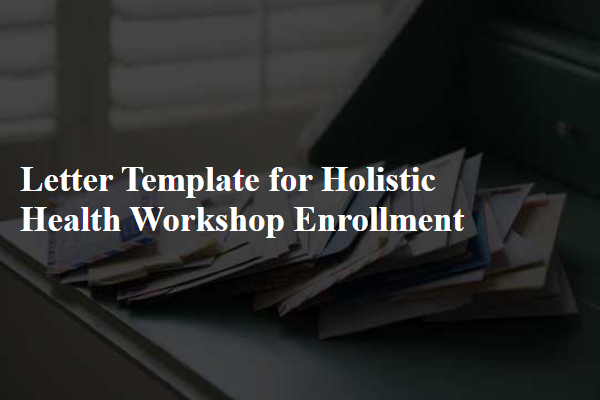
Comments